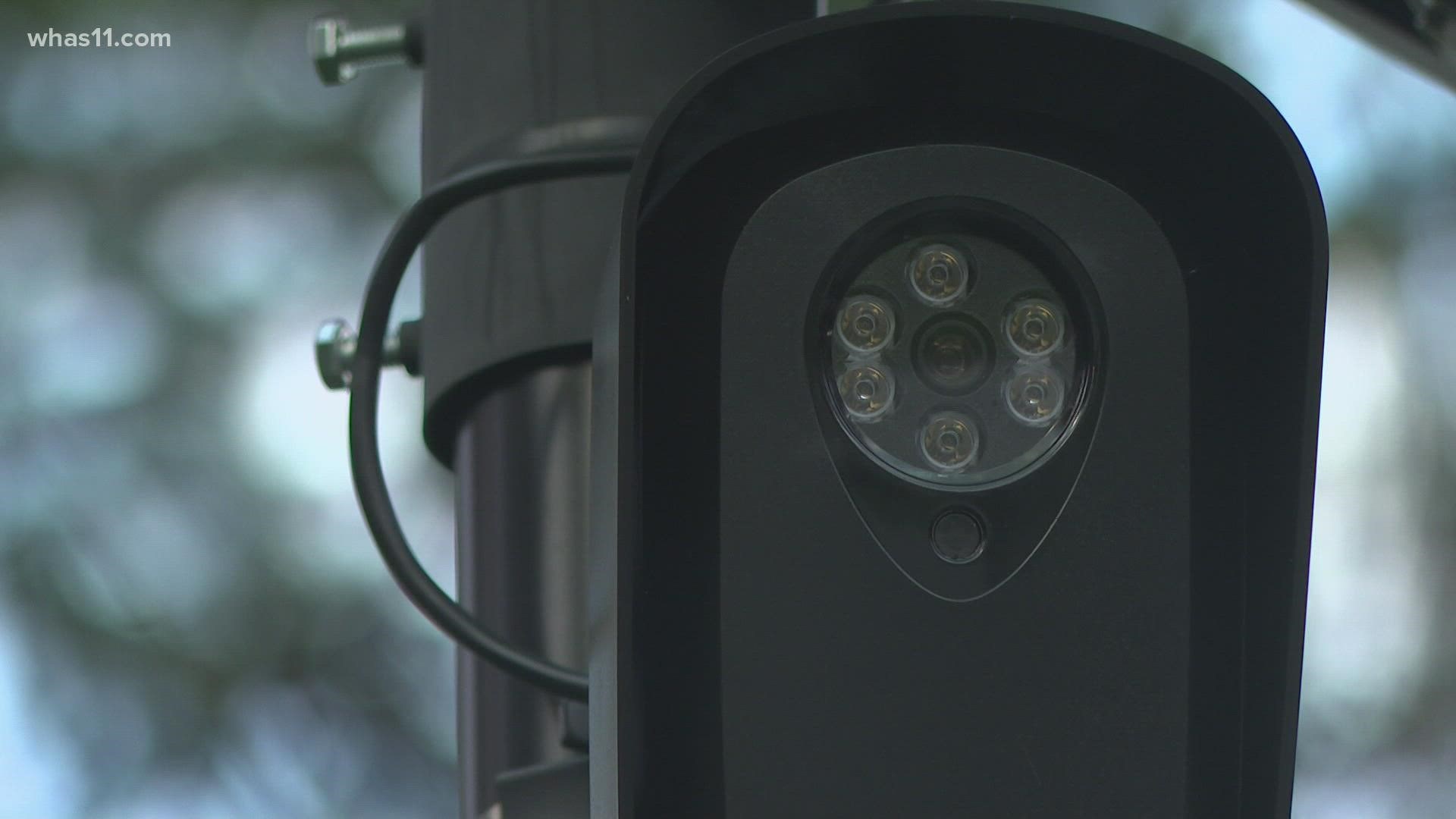LOUISVILLE, Ky. — You may not see it, but it will see you. Or at least, your license plate.
Automatic License Plate Readers take photos and then log data about every vehicle they see.
People living in the Polo Fields community said it makes them feel safer, but some people have privacy concerns when you apply it to a larger scale, like an entire city.
Scott Allen and the Homeowner Association's Safety Committee in Polo Fields monitor the cameras. He said each neighbor pays $12 a year, totaling $12,000 for six cameras.
With one camera at each entrance, they see every license plate that enters their community.
Allen said it's a change they made in 2019 when packages were being stolen off porches every week.
"Since the cameras have been installed, we have had zero reports of that," Allen said.
Over in Indiana, the town of Clarksville installed them last October. A spokesperson for the town said they've used the system to make 38 arrests and recover 35 stolen vehicles.
However, the American Civil Liberties Union in Kentucky warns the courts haven't caught up to this technology.
Interim Executive Director Amber Duke said, "A person's license plate could be scanned, and they have no idea, and it could end up in a database for an unlimited period of time if there aren't restrictions set up for how long that information could be held."
Duke has been working with Lexington to implement these cameras city-wide in an equitable way.
She said the city initially planned to put these cameras in high crime areas - but census data showed that would lead to more arrests of already marginalized people. So, they spread it out.
The majority of these cameras come from a company called Flock Safety.
We sat down with spokesperson Holly Beilin who agreed companies have to be proactive or risk invading privacy. She said they delete images, that aren't being used in an investigation, every 30 days.
She also noted they don't own the data.
"That means that we as the vendor can never sell or share that data with any third parties," Beilin said.
Back in Polo Fields, Scott Allen is happy to have the cameras. He said it keep him and his daughter safe.
Make it easy to keep up-to-date with more stories like this. Download the WHAS11 News app now. For Apple or Android users.
Have a news tip? Email assign@whas11.com, visit our Facebook page or Twitter feed.

